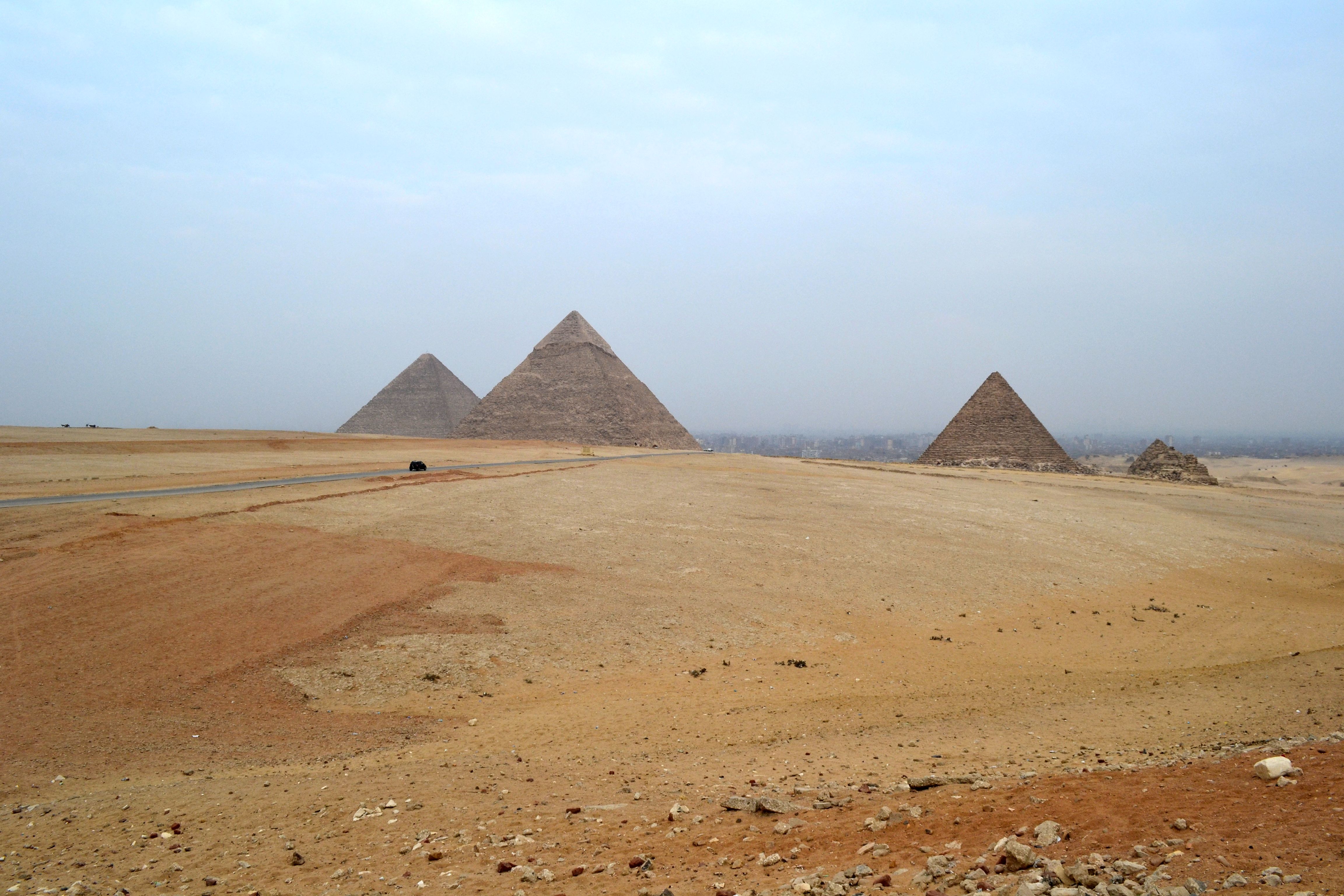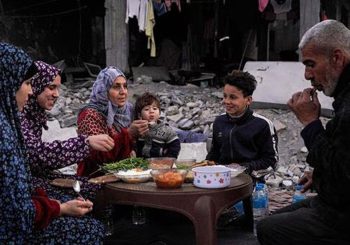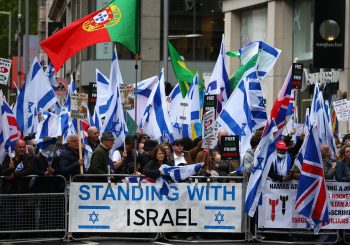On the eve of the second anniversary of the 2011 revolution, violence echoed through the streets of Cairo. Clashes between security forces and protesters erupted near Tahrir Square, as protesters destroyed a military-erected wall that blocked Qasr Al-Aini road. Tear-gas was fired, scores of both rioters and police were arrested, and Egypt’s media has furiously predicted the beginning of waves of massive protests and potential violence.
Anyone who has been following EgyptianStreets will have noticed that the blog has not been favorable towards the Muslim Brotherhood. EgyptianStreets has been calling for Egyptians to raise their voice against the inept, Islamist-dominated government that has been ignoring the cries of millions of Egyptians who continue to suffer through a deteriorating economy.
Yet, no post on EgyptianStreets has ever called for violent action towards the government or any Islamist party. The burning of the Muslim Brotherhood’s HQs around the country over the past few months, or the fire-bombing of Egypt’s Shura Council (Upper House of Parliament) and the burning of Egypt’s Scientific Institute (“accidently”) today are actions that should be condemned and not praised.
Attacking Egyptian policemen who are guarding state institutions – such as the Interior Ministry – is unwarranted. The policemen – many who are against the Muslim Brotherhood and Egypt’s President Morsi – are there for the protection of Egyptians and Egyptian institutions. The policemen today – and on various other occasions – did not directly confront the ‘protesters’ by breaking up their gathering at Tahrir Square or other locations. The policemen today were attacked by angry ‘protesters’ who threw rocks and Molotov cocktails at them. In any other country, the policemen would respond by shooting any attacker dead. In Egypt, the policemen simply have to hold their ground long enough – through the use of incessant tear-gas and ‘rock-throwing’ – for the protesters to withdraw.
Still, it is not simply the violence and the chaotic aims of the Ultras Ahlawy and other groups that is causing me to boycott both celebrations and protests of the January 25th revolution. I am also boycotting tomorrow because the people who will be protesting, are the same people that allowed Morsi and his Islamist puppeteers into power.
Media officials, influential Egyptian bloggers, politicians, novelists, university students, and many more adamantly stood by Mohammed Morsi during Egypt’s first presidential elections. They all proclaimed Morsi and the Muslim Brotherhood as the ‘saviors’ of the revolution – saving Egyptians from the ‘evil Supreme Council of Armed Forces’ and the ‘murderous’ presidential candidate Ahmed Shafiq. Yet, in less than a month, every single one of them quickly realized the grave mistake they have made: they did not elect a President – they elected an ideology.
Nevertheless, I fully support peaceful protesting (even if it is done by hypocrites). The violent protests that Egypt has witnessed over the past two years since the revolution are however unacceptable: tens of Egyptians have died, and hundreds more injured as the nation continues to fall apart with each incidence of violence.
The repercussions are clear. With violence, the ‘protesters’ end up being labeled as thugs. With violence, the Muslim Brotherhood and radical Islamists can continue to legitimize every single undemocratic decision that is taken. With violence, protesters lose credibility in the eyes of other Egyptians and the world. True calls for liberty and equality are at risk of being lost in the flames of violence.
Finally, there is one simple reason why every Egyptian should condemn the violence that has occurred today and potential violence over the coming weeks: violence does not reflect the spirit of the January 25th Revolution where millions of civilized Egyptians gathered to peacefully and passionately to call for “Bread, equality, and freedom.”







Comments (16)
It will get very ugly over there, the economy by all acnutcos is on the verge of collapse, if the army cedes power or allies itself with the Islamists expect a very belligerent powderkeg.
I don’t understand how Egyptians elected a right wing party like the Muslim brotherhood, they’re conservative who won’t make any difference when it comes to the economy. I thought Egyptians would elect centerists and leftists as their main demands were bread, freedom and social justice. And no right wing party will even work to meet these demands! However, the Muslim brotherhood must fail to recreate itself if they wanna keep playing politics in Egypt. Otherwise I expect there will be an early presidental election!
The ‘liberals’ that elected Morsi felt that he was a better option than Shafiq. They thought that Shafiq represented the Mubarak regime – something they didn’t want to go back to – and that Morsi (although part of the Muslim Brotherhood) could be the way forward. This was stupid, why? Because Morsi is not going to throw away 50 years of brainwashing/teachings/beliefs over night.
Why others elected Morsi? That is a long story, but mainly consists of: poverty, illiteracy, ignorance, vote rigging, “bribery”, etc.
It appears that the Muslim Brotherhood and Morsi are on the way down (given recent events/violence).
Interesting! If this is the way to get elected, the other parties should do the same! you can’t be a decent party in an indecent competition!
Well, Morsi’s way of ruling Egypt is similar to the previous regime; applying for loans from IMF, stressing on peace with Israel and the Gulf’s security, asking for aids from the Gulf countries, managing the crisis in Gaza, dealing with internal issues through declaring emergency, cutting subsidies, mobilizing his supporters against opposition or demonstrations, ignoring judicature, etc….
It’s disappointing to see what’s going on in Egypt. Muslim Brotherhood lacks economic creativity!
The Muslim Brotherhood are very well established in Egyptian society: they run schools, hospitals, bakeries, super markets – and lots of other places that influence voters in the poorer regions of Egypt: the voters who only care about being able to provide for their families and have enough food. The opposition needs to do the same: they need to start making a REAL impact on the poorer regions/communities in Egypt in order to get the vote of the ignorant/poor/uneducated/illiterate – they needs to have much greater influence on society as at the moment, they are simply “Anti-Morsi” and nothing else.
In regards to Morsi’s way of ruling Egypt: at least the Mubarak regime did it better – economy was thriving (although there was growing economic inequality), and the international community respected Egypt as a major political player in both the Middle East and the World. Morsi is killing this every day: i.e. condemning French intervention in Mali, insulting Jews, isolating/getting on the nerves of the Gulf Countries etc.
it is Mubarak Brotherhood then!